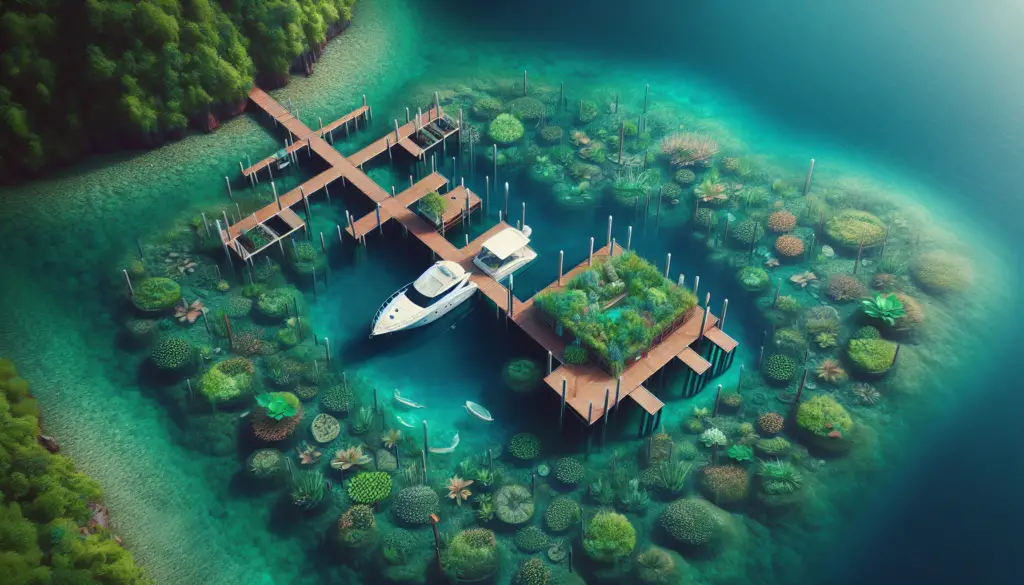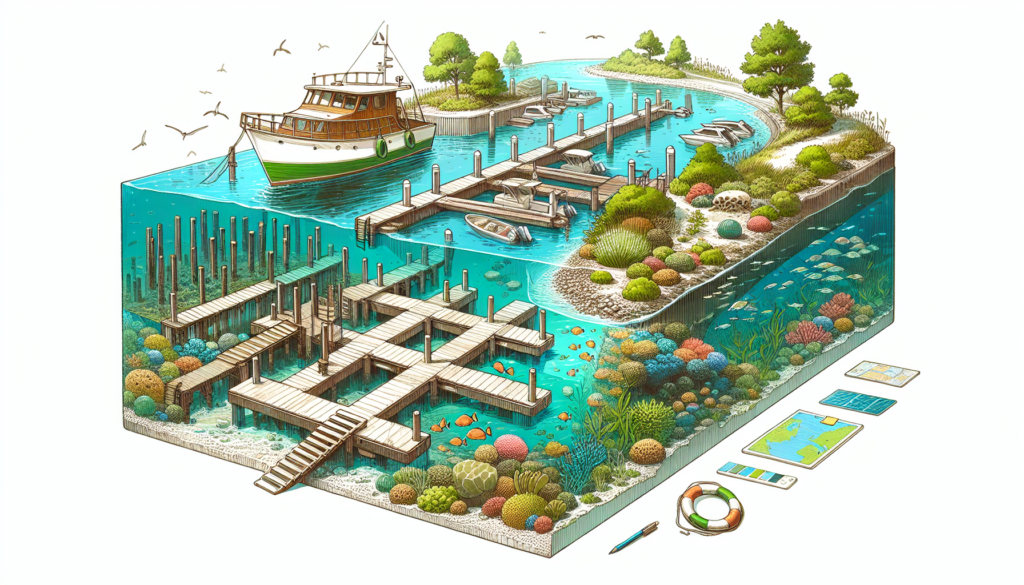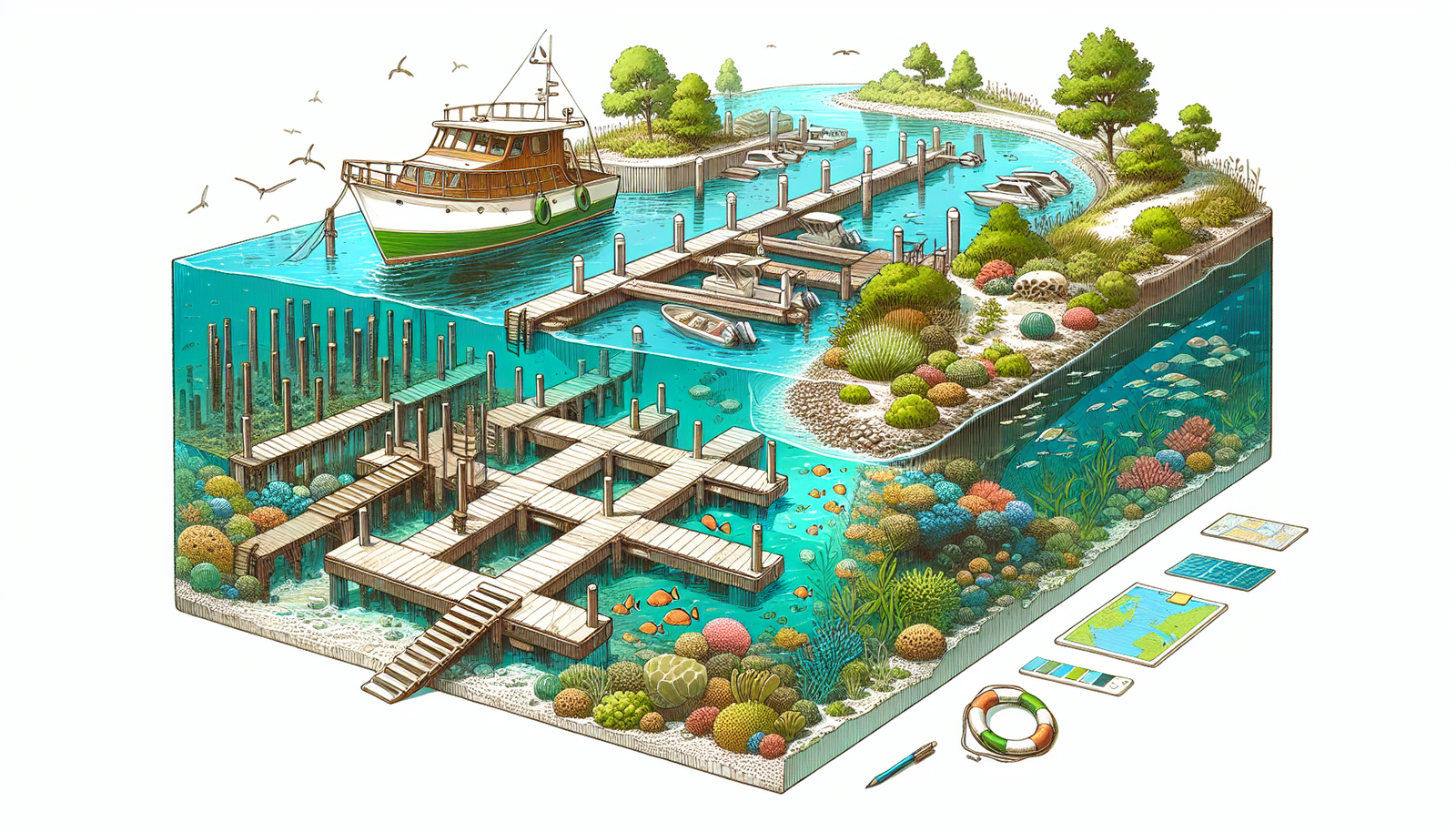Choosing to be environmentally conscious doesn’t stop when you decide to hit the open water. Even when docking and launching your boat, there’re multiple eco-friendly strategies you can adopt. This article offers a comprehensive guide to these sustainable practices—ones that will minimize your carbon footprint and secure the pristine condition of our maritime environments. By demonstrating consideration for the sea and local marine life, you’ll not only be promoting the vitality of our waters, but you’ll also enhance the future enjoyment of both you and other seafaring adventurers. So, let’s set sail on “Eco-Friendly Strategies For Docking And Launching Your Boat.”

Understanding the Need for Eco-friendly Boating Practices
As a boat owner, you might take great pride in your vessel and the freedom and relaxation it offers. However, have you ever wondered what impact your boat has on the environment? The environmental footprint of boating can be significant, from your boat manufacturing process to launching, running, and maintaining your vessel.
Identifying the impact of boating on the environment
Boating can contribute to environmental harm in several ways. It can cause water and air pollution through the discharge of petroleum products, cleaning agents, waste materials, and toxic antifouling paints. Noise and light pollution from boats can disrupt the natural behaviors of marine life. Furthermore, improper boating activities can lead to physical damage to delicate habitats such as coral reefs, seagrass beds, and shoreline vegetation.
Importance of adopting sustainable boating habits
The good news? You can make a difference! By adopting sustainable boating habits, you can minimize your negative impact on the environment. Not only will this make your boating activities more environmentally friendly, but it will also help ensure the long term viability and enjoyment of our waterways for future generations. It’s about being responsible users of these precious resources.
Choosing Eco-friendly Boats
Choosing an eco-friendly boat is a potent first step toward more sustainable boating. It sends a strong message about your commitment to preserving the marine environment.
Non-toxic materials for construction
Eco-friendly boats are built using non-harmful, recyclable materials. These materials reduce the environmental impact during the boat construction process and after the boat’s lifecycle ends. The use of non-toxic paints and finishes and the reduction or elimination of fiberglass (which is not biodegradable) is a trend toward sustainable boat building.
Sustainable power sources: electric and hybrid boats
Boats powered by electricity or hybrid systems are gaining popularity due to their environmental benefits. They produce less (or zero) emissions compared to their gasoline-powered counterparts and are quieter, contributing less to noise pollution.
Considerations for inboard and outboard motors
When choosing a motor for your boat, consider not just the power and performance but also the environmental implications. Whenever possible, opt for an engine that’s built to last, uses fuel efficiently, and runs cleaner.

Maintaining a Clean Hull
A clean hull can improve your boat’s performance and fuel efficiency, reducing your overall environmental impact.
The role of a clean hull in promoting fuel efficiency
A clean hull can reduce drag and improve propeller performance, leading to better fuel efficiency. This can translate to cost savings for you and reduced emissions for the environment.
Non-toxic hull cleaning methods
When cleaning your hull, avoid toxic cleaning agents that can harm aquatic life. Instead, opt for biodegradable, phosphate-free products. Regular use of these eco-friendly cleaning methods can keep your hull in good condition while minimizing your environmental footprint.
Sustainable Method of Launching Boats
Boat launching is another area where you can make a significant difference.
Safe and efficient launching techniques
Consider techniques that minimize environmental impact. For instance, use a designated boat ramp instead of launching from a sensitive shoreline which could damage aquatic plants and habitats.
Reducing water pollution during the launch
Be mindful of potential pollutant discharges during the launch. Ensure that your boat is clean and free of leaks before launching. Avoid spilling fuel and lubricants and use environmentally-friendly antifouling paints that resist leaching.

Practicing Responsible Docking
Docking your boat responsibly is not just about securing your vessel; it’s also about protecting the local environment.
Avoiding damage to shoreline habitats
When docking, steer clear of sensitive areas such as seagrass beds and coral reefs that can be easily damaged by boat activities.
Eco-friendly docking systems and materials
When possible, use eco-friendly docking materials such as recycled plastics or sustainably-harvested wood. Floating docks or pile-supported structures minimize shoreline alterations and impact on bottom-dwelling organisms.
Fuel Efficiency Considerations
Paying attention to fuel efficiency can go a long way toward reducing your boat’s environmental impact.
Improved engine maintenance for fuel efficiency
Regular engine maintenance can keep your boat running efficiently while reducing harmful emissions. This includes timely oil changes, spark plug replacements, and keeping your cooling system clean and in good condition.
Reduced speed and proper loading for fuel conservation
Boating at slower speeds and avoiding overloading your boat can greatly increase fuel efficiency. Not only will this save you money at the pump, it will also help conserve our natural resources and reduce the emissions that contribute to air pollution.

Waste Management Onboard
Waste management onboard your boat is a critical aspect of sustainable boating.
Proper waste disposal systems onboard
Ensure your boat has proper systems for the collection and disposal of trash, greywater, and sewage. Remember never to throw anything overboard – not only is it environmentally harmful, but in most places, it’s also illegal.
Waste reduction: bring less, reuse more
An easy way to reduce waste onboard is simply to bring less with you. Avoid single-use items, opt for reusable alternatives, and recycle whenever possible. Every effort counts.
Reducing Noise Pollution
Noise pollution from boats can disrupt marine life’s natural behaviors, including feeding, breeding, and communication.
Impact of noise pollution on marine life
Underwater noise from boats can cause stress, disorientation, and physical harm to aquatic animals. For animals like whales and dolphins, which rely on sound for communication and navigation, boat noise can be particularly disruptive.
Strategies to minimize noise from your boat
There are several strategies to reduce your boat’s noise emission: keep your engine well-maintained for quieter operation, run at slower speeds, and consider using noise-dampening materials on your boat.
Care for Local Aquatic Ecosystems
As boaters, it’s our responsibility to care for the ecosystems in which we operate.
Understanding the importance of preserving marine ecosystems
Healthy aquatic ecosystems are vital. They provide habitat for wildlife, help regulate climate, and offer recreational opportunities for people. If these ecosystems are damaged, it can take many years for them to recover, if they recover at all.
Strategies to avoid disturbing marine life
To avoid disturbing marine life, keep a safe distance from all wildlife, adhere to ‘no wake’ zones, and refrain from activities like fishing or anchoring in sensitive areas. Educate yourself about the ecosystems in which you boat and always strive to leave them in the same (or better) condition than you found them.
Adopting Green Boating Products
Lastly, there are plenty of products available to help boaters minimize their environmental footprint.
Environment-friendly cleaning products
Eco-friendly cleaning products, made without harmful chemicals, are good for your boat and the environment. They can be used to clean your hull, decks, and interiors without introducing toxins into the water.
Sustainable gear and material choices
From recyclable life jackets to solar-powered gear, there are many ways to outfit your boat sustainably. With these solutions, you can enjoy boating while ensuring that you are doing your part to protect our waterways for future generations.

